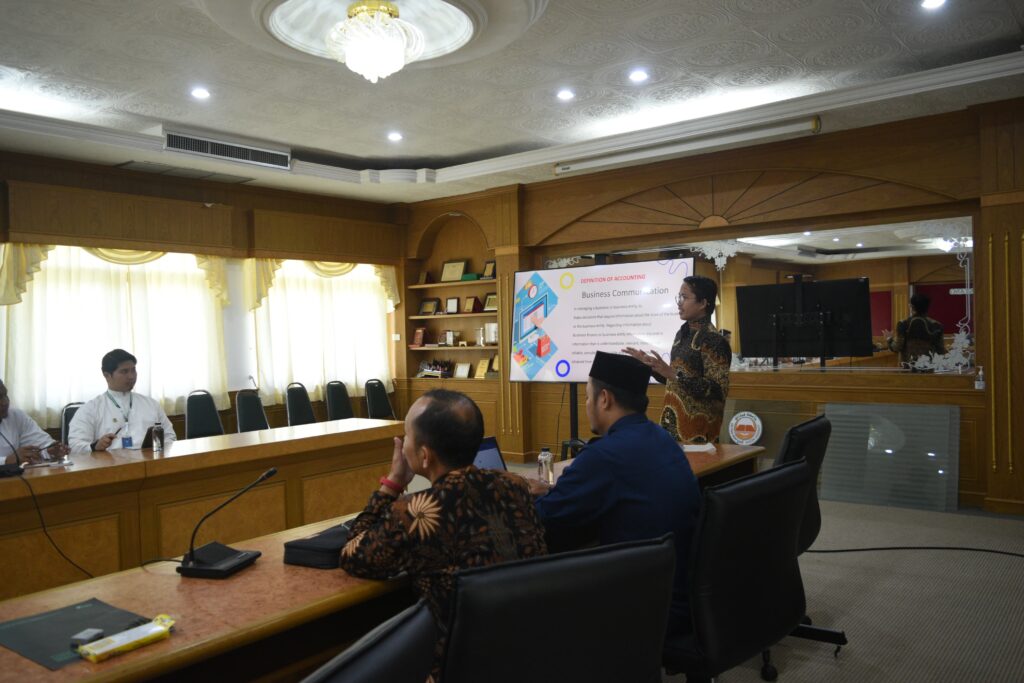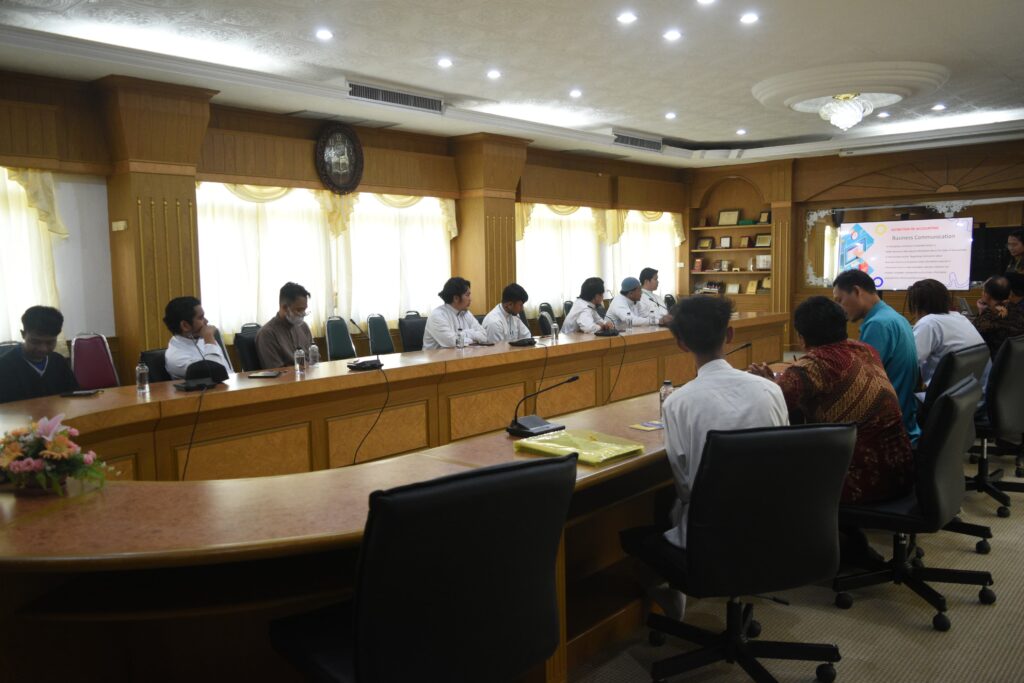FEBI News| Pattani, Thailand – (29 September 2024) Mufti Arief Arfiansyah, M.Ak., a prominent lecturer from the Faculty of Islamic Economics and Business (FEBI) at UIN Raden Mas Said Surakarta, delivered an engaging international guest lecture titled “The Role of Sharia Accounting in Assessing the Performance of Small and Micro Businesses” at Fatoni University, Thailand, on 29 September 2024. The lecture drew students from several countries, including Thailand, Malaysia, and Indonesia, who participated enthusiastically in the insightful discussions.
The lecture centered on the critical role that Sharia accounting principles play in the financial assessment and management of small and micro businesses. Mufti Arief Arfiansyah explained how Sharia accounting not only ensures that financial transactions are compliant with Islamic law (Shariah), but also offers a comprehensive framework for evaluating business performance, ensuring ethical practices, and promoting sustainability.
Throughout the session, he elaborated on the unique aspects of Sharia accounting, including the emphasis on fairness, transparency, and accountability. These principles are vital for small and micro businesses, which often face challenges in maintaining accurate financial records and ensuring ethical management.
Cross-National Student Participation
The lecture attracted a diverse audience of students from Thailand, Malaysia, and Indonesia, fostering a collaborative environment for academic exchange. The students actively participated in the discussions, sharing their perspectives on how Sharia accounting can address the financial challenges faced by small businesses in their respective countries. This cross-cultural interaction added depth to the lecture, enhancing the understanding of Sharia accounting’s practical applications across different regions.
Enhancing the Role of Small and Micro Businesses
Mufti Arief Arfiansyah underscored the importance of small and micro businesses as the backbone of many economies, particularly in Muslim-majority countries. He highlighted how applying Sharia accounting principles can enhance the operational efficiency, financial transparency, and long-term sustainability of these businesses. Additionally, he presented real-world examples of how Islamic financial institutions can support small businesses by offering Sharia-compliant financing options that align with their ethical and operational goals.
Strengthening Academic Collaboration
The international guest lecture was part of an ongoing academic partnership between UIN Raden Mas Said Surakarta and Fatoni University, aimed at strengthening collaboration in the fields of Islamic economics and finance. This event reflects both institutions’ commitment to advancing the study of Sharia-compliant business practices and contributing to the development of Islamic financial literacy in the region.
Looking Ahead
The session concluded with an interactive Q&A segment, where students from Thailand, Malaysia, and Indonesia posed thoughtful questions on the practical implementation of Sharia accounting for small and micro businesses. The lecture not only deepened their understanding of Sharia accounting but also inspired them to explore ways to apply these principles in their future careers.
The success of this international guest lecture highlights the growing importance of Sharia-compliant financial systems in today’s global economy and underscores the significance of small and micro businesses in fostering economic growth.
This event serves as a milestone in the collaboration between UIN Raden Mas Said Surakarta and Fatoni University, further enriching the academic discourse on Islamic accounting and finance at an international level.




Add a Comment
You must be logged in to post a comment